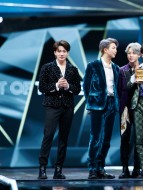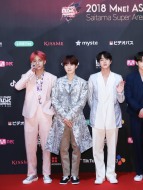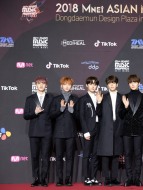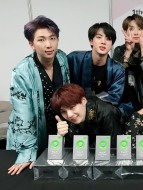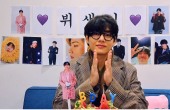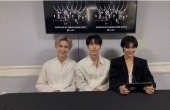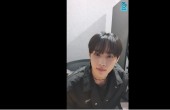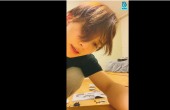Home > Feature
Band or brand: Experimental idol project NCT shakes K-pop norms
Since striking gold with boy band H.O.T. in the mid '90s, S.M. Entertainment has held onto K-pop pioneer status with its ever-evolving sophistication of music and talent management.
The music industry behemoth is again aiming high, experimenting with an ambitious project, called NCT, that challenges the foundational norms and conventions of the K-pop business.
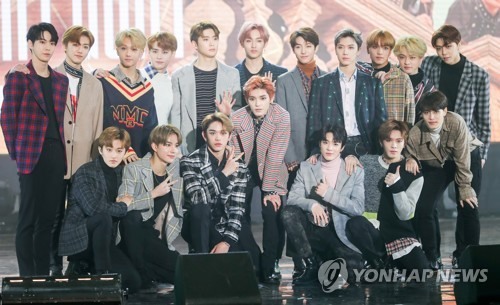 |
| (S.M. Entertainment) |
As of now, three South Korea-based teams -- NCT U, NCT 127 and NCT Dream -- have been launched. Since April 2016, these units have released digital singles and EPs in turns. This week, the three groups put out a joint full-length studio album, "NCT 2018 Empathy," mobilizing all 18 members for the first time.
Initial preorders surpassed 200,000 copies, with the album topping Apple iTunes album charts in 18 countries.
In plain sight, NCT could simply be seen as a massively bombastic boy band comprised of numerous sub units. But a closer look into the group raises some fundamental questions even among the most hardcore fans of K-pop: Is NCT an artist or a brand? One could also perceive it as an idol system or platform.
The closest thing to NCT in the past was probably girl group After School by Pledis Entertainment, which had a semi-rotational roster with the concept of "enrollment" and "graduation," taking a page from the play book of J-pop act Morning Musume. This admittedly gimmicky concept acted as insurance in keeping the After School brand intact after departures of key members.
Subunits within pre-existing groups are also a concept that is already familiar to fans of K-pop. EXO and Girls' Generation, two crown jewel groups under S.M., all have or have had operated smaller subunits. NCT essentially aims to amalgamate and evolve these trends, adding an element of endless possibility of permutations in lineups.
NCT is also essentially an updated embodiment of "Culture Technology (CT)," a concept created by Lee, which lays down detailed steps for popularizing K-pop in the global market. Lee has been pitching CT as an entertainment industry standard that can be used in different regions of the world to create its own version of "hallyu," a term referring to the popularity of Korean culture.
"NCT is essentially a 2.0 version of the Culture Technology concept. The most important thing added here is the idea of localization," noted Kim Youngdae, a K-pop critic based in Seattle.
K-pop artists' efforts in entering a foreign market in the past usually centered on singers learning to speak a foreign language. With NCT, what S.M. is aiming for is the creation of regional NCT modules from the beginning.
"That is the fundamental nature of NCT. NCT exists as a massive pool without a fixed roster. Concept-wise, S.M. Entertainment can proactively engage in various markets by mobilizing and mixing appropriate talent from its pool."
Whether NCT can truly flourish overseas remains to be seen, as it has yet to launch units based in overseas cities. The current three NCT groups, however, include Chinese and Thai singers, as well as Korean American members.
Unless you're already a hardcore fan, getting into NCT, with a lot of moving parts, a massive roster and a complicated structure, can be somewhat jarring. At a media showcase for NCT's new album in Seoul on Wednesday, many questions were raised on the group's conceptual and structural complexities.
"It will be a success in and of itself if fans are able to get a grasp of the concept and structure of NCT," member Doyoung told reporters. He also admitted having difficulty in understanding the concept of NCT during his trainee years, but said he now has a full understanding.
"You don't have to toil (over understanding the concept). Just try to approach it with an open mind. I think the new album will help people understand (what NCT is)," the singer added.
The typical artist-fan relation for NCT may also be unique in light of NCT's fundamentally fluid and boundary-free aspect. Compared to other conventional groups, fans may experience cognitive dissonance when trying to relate to a group that is subject to constant transformation by principle.
"There could be some difficulty for the public to get to know NCT because fans, in a way, are facing a concept, as opposed to a fixed group, such as EXO or BTS," Kim said.
S.M. is clearly in for the long-haul for the NCT project, injecting heavy resources into the project with goal of elevating NCT as its next big product. For the new album promotion, S.M. has released six music videos and numerous supplementary videos, giving a much-needed push to the NCT brand.
"I think it is possible for NCT to become successful if fans become familiar with the concept. Also, whether they succeed or not will have to be measured on NCT's global performance," noted Kim. (Yonhap)









